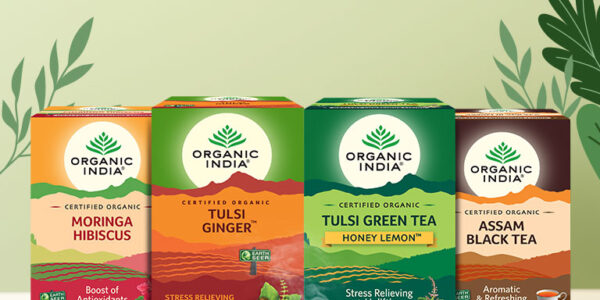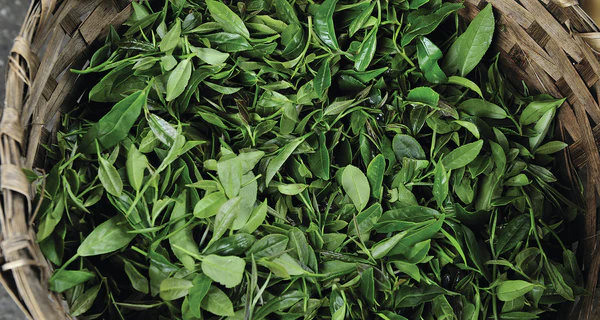Organic Tea: Discover the Health Benefits and Flavors

Organic tea is made from leaves grown without synthetic fertilizers or pesticides. It promotes health and environmental sustainability.
It offers numerous benefits for both health and the environment. This tea is free from harmful chemicals, making it a healthier choice for tea lovers. This tea type is rich in antioxidants, which help in fighting free radicals in the body.
Organic farming practices ensure the soil remains fertile and reduces pollution. The diverse flavors and natural taste make this tea a delightful beverage.
Introduction To Organic Tea
Organic tea is becoming popular among health enthusiasts. It offers numerous health benefits and tastes great. Understanding its roots and nature can enhance your appreciation of this delightful beverage.
What Is Organic Tea?
This tea comes from plants grown without synthetic chemicals. Farmers use natural methods to grow these plants. This ensures the tea is free from harmful pesticides.
Choosing this tea supports the environment. It promotes sustainable farming practices. It is often richer in antioxidants, which benefit health.
History Of Organic Tea
The history of organic tea dates back centuries. Ancient civilizations valued natural farming methods. They believed in harmony with nature.
In the 20th century, the organic movement gained momentum. People began to see the benefits of organic farming. This led to a rise in its production.
Today, organic tea is enjoyed worldwide. Many tea brands offer organic options. This makes it easier for consumers to choose healthier alternatives.
| Benefit | Details |
|---|---|
| Environmental Impact | Supports sustainable farming and reduces chemical use. |
| Health Benefits | Rich in antioxidants and free from harmful pesticides. |
| Flavor | Often has a fresher, more natural taste. |
-
- Supports sustainable farming
- Free from harmful chemicals
- Rich in antioxidants
- Fresher taste
Health Benefits of Organic Tea
This tea is not just a delightful beverage and It also offers numerous health benefits. From antioxidants to immune support, It is a wellness powerhouse.
Rich In Antioxidants
Organic tea is packed with antioxidants. These compounds combat free radicals in the body. Free radicals can cause cell damage. Antioxidants help protect your cells and keep you healthy.
- Reduces oxidative stress
- Slows aging process
- Prevents chronic diseases
Boosts Immune System
Drinking organic tea can boost your immune system. It contains natural compounds that enhance immunity. A strong immune system helps fight off infections and illnesses.
- Contains vitamins and minerals
- Helps the body fight viruses
- Supports overall wellness
Aids Digestion
This tea can also aid in digestion and It has properties that soothe the digestive tract. This can help reduce bloating and discomfort.
- Improves gut health
- Reduces indigestion
- Calms stomach issues
Promotes Heart Health
Another benefit is its ability to promote heart health and It helps lower cholesterol levels and improve blood circulation. This reduces the risk of heart disease.
Popular Types Of Organic Tea
This tea is a beloved beverage enjoyed worldwide. It offers a variety of health benefits and delightful flavors. In this section, we explore the popular types of it. Each type has unique characteristics and benefits.
Green Tea
Green tea is one of the most popular organic teas. It is known for its fresh, grassy flavor and numerous health benefits. Green tea is rich in antioxidants, which help fight free radicals in the body. Drinking green tea can boost metabolism and improve brain function.
There are several varieties of green tea:
-
- Sencha
- Matcha
- Gyokuro
Black Tea
This tea is another favorite tea and It has a bold, robust flavor. Black tea contains more caffeine than other teas, making it a great morning beverage and It is also packed with antioxidants, which support heart health.
Popular types of black tea include:
- Assam
- Darjeeling
- Earl Grey
Herbal Tea
Herbal tea is a caffeine-free option. It is made from herbs, flowers, and fruits. Herbal tea is known for its soothing properties. It can help with digestion and relaxation.
Common herbal teas are:
- Chamomile
- Peppermint
- Rooibos
White Tea
White tea is the least processed of all teas. It has a delicate, sweet flavor and rich in antioxidants and has anti-aging properties and also supports skin health.
Varieties of white tea include:
- Bai Hao Yinzhen
- Bai Mu Dan
- Shou Mei

Choosing The Right Organic Tea
Choosing the right organic tea can be tricky. With many options available, understanding what to look for is key. This guide will help you make the best choice.
Factors To Consider
Several factors can influence your choice. Let’s explore these important factors:
- Flavor: Different teas have different flavors. Choose what you enjoy.
- Health Benefits: Some teas offer specific health benefits. Match these to your needs.
- Origin: The origin of the tea can affect its quality and taste.
- Price: Organic teas can vary in price. Pick one within your budget.
Reading Labels
Reading labels is essential to ensure the tea is truly organic.
The tea meets organic standards. Always check labels on the packaging:
- Certified Organic
- Non-GMO
- Fair Trade
These labels ensure you are getting quality tea.
| Label | Meaning |
|---|---|
| Certified Organic | |
| Non-GMO | The tea is free of genetically modified organisms. |
| Fair Trade | The tea is produced under fair labor conditions. |
Brewing Techniques
Brewing organic tea is an art. It requires the right techniques to bring out its rich flavors and health benefits. This section will guide you through the essential steps for brewing the perfect cup of tea.
Water Temperature
Using the correct water temperature is crucial for extracting the best flavors from your organic tea leaves.
- Green Tea: 160-180°F (70-80°C)
- Black Tea: 200-212°F (93-100°C)
- White Tea: 160-185°F (70-85°C)
- Oolong Tea: 185-205°F (85-96°C)
- Herbal Tea: 212°F (100°C)
Boil your water to the right temperature. Use a thermometer for accuracy.
Steeping Time
The strong steeping time affects the tea’s flavor and strength. Follow these guidelines:
White Tea 4-5 minutes
| Type of Tea | Steeping Time |
|---|---|
| Green Tea | 2-3 minutes |
| Black Tea | 3-5 minutes |
| Oolong Tea | 4-7 minutes |
| Herbal Tea | 5-7 minutes |
Steep your tea for the recommended time. Do not over-steep.
Tools And Equipment
Using the right tools and equipment ensures the best brewing experience.
- Tea Kettle: Boil water accurately.
- Strong Tea Infuser: Hold loose tea leaves.
- Tea Pot: Brew multiple servings.
- Tea Cup: Serve your tea.
- Timer: Track steeping time.
Invest in quality equipment for a better tea experience.

Flavor Profiles
Organic tea offers a symphony of flavors that delight the senses. Each sip reveals a unique taste journey, crafted from nature’s finest ingredients. Dive into the diverse flavor profiles to discover your perfect cup.
Fruity And Floral
Organic teas with fruity and floral notes are light and refreshing. They often include hints of berries, citrus, and blossoms. These teas provide a fragrant, uplifting experience. Perfect for a sunny afternoon.
-
-
- Berry Delight: A burst of strawberry and blueberry flavors.
- Citrus Blossom: Zesty lemon and orange with a floral finish.
- strong Jasmine Green: Green tea infused with sweet jasmine petals.
-
Earthy And Spicy
For those who enjoy robust flavors, earthy and spicy teas offer depth and warmth. These teas often feature spices like cinnamon, ginger, and cardamom. These teas are cozy and comforting.
-
-
- Chai Spice: A blend of black tea with cinnamon, cardamom, and cloves.
- Ginger Root: Bold ginger with a hint of lemongrass.
-
Sweet And Savory
These teas offer a unique taste experience. Often, they combine sweet fruits or honey with herbs and spices. These teas are perfect for a surprising twist.
-
-
- strong Honey Mint: Sweet honey paired with refreshing mint.
- Apple Chamomile: Gentle chamomile with sweet apple notes.
- Rosemary Lemon: Savory rosemary with a touch of lemon.
-
Explore these flavor profiles to find your favorite organic tea. Each cup offers a unique experience. Enjoy the natural goodness!
Incorporating Organic Tea Into Daily Routine
Incorporating tea into your daily routine can boost well-being and vitality.
Morning Rituals
Start your day with a cup of organic green tea. It provides a gentle caffeine boost to kickstart your morning. The antioxidants in green tea help to cleanse your body and mind.
For a more invigorating option, try organic matcha tea. It offers a richer flavor and a higher concentration of nutrients. Matcha can help improve focus and energy levels throughout the day.
Midday Boost
A cup of organic tea in the afternoon can provide a much-needed energy lift. Opt for organic oolong tea. It helps to enhance mental alertness and concentration.
Evening Relaxation
Wind down in the evening with a calming cup of organic chamomile tea. Its soothing properties help to relax the mind and body, preparing you for a restful sleep.
For a different flavor, try organic rooibos tea. It is caffeine-free and rich in antioxidants, making it perfect for nighttime.
Consider creating a bedtime tea ritual. Dim the lights, play some soft music, and enjoy your tea in a serene environment.
Sourcing And Sustainability
Understanding the sourcing and sustainability of fleshly tea is crucial. It ensures quality and supports the environment. Let’s delve into the details of how organic tea is ethically sourced and its environmental impact.
Ethical Sourcing
Ethical sourcing means getting tea from fair and just sources. Farmers receive fair wages and work in safe conditions. These practices help community growth and development.
- Fair wages for farmers
- Safe working conditions
- Community development
Ethically sourced tea supports small farmers. It ensures they have the means to continue their traditional farming practices. This contributes to preserving cultural heritage and sustainable livelihoods.
Environmental Impact of Organic Tea
Organic tea farming minimizes the environmental impact. It avoids harmful chemicals and pesticides. These methods protect soil health and water quality.
<td>Protects water sources
| Practice | Benefit |
|---|---|
| Use of natural fertilizers | Improves soil health |
| No chemical pesticides | |
| Crop rotation | Reduces soil erosion |
Organic farms also support biodiversity. This balance helps maintain a healthy ecosystem.
Frequently Asked Questions
What Is Organic Tea?
This tea is made from tea leaves grown without synthetic pesticides or fertilizers. It’s healthier and environmentally friendly.
How Is Organic Tea Different?
It is free from chemicals and grown sustainably. It provides a purer taste and more health benefits.
Is Organic Tea Healthier?
Yes, this tea contains fewer toxins and more antioxidants. It’s a healthier choice for tea drinkers.
Where Can I Buy Organic Tea?
It is available in health stores, online shops, and supermarkets. Look for certified organic labels.
Conclusion of Organic Tea
Choosing organic tea offers numerous health benefits and supports sustainable farming practices. Enjoy its rich flavors and natural goodness. Make a positive impact on your well-being and the environment. Start your journey with organic tea today and experience the difference in every sip.




Leave a Reply